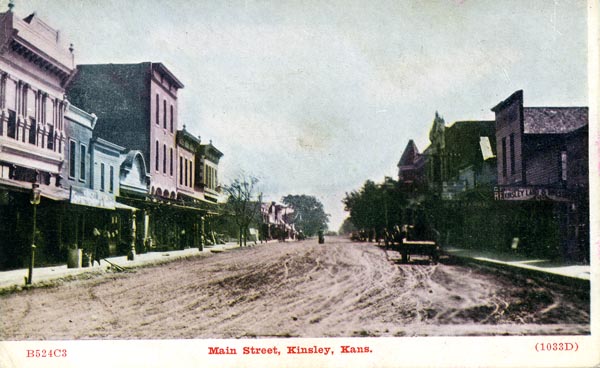“There has been new developments in the mystery of who tried to fire the town a week ago last night (January 9, 1880), nothing to assist in pointing to any one with suspicion has transpired, and yet that there was a villain in this town bent on wholesale destruction of property…. is a certainty. Who he is, is the mystery and may heaven have mercy on him if the mystery be cleared. Monday morning (January 12) a passing engine set fire to the prairie, and hard work alone saved considerable hay belonging to N. L. Mills. Monday evening the residence of Mr. L. V. Lewis took fire and with his household furniture, burned to the ground. Mr. Lewis and his wife at the time were sitting in the house, and were not aware of danger until it was too late to even save their wearing apparel. Tuesday morning (January 13) a prairie fire came up from the south, and would have made its way into town with a certain loss to property, had not the citizens turned out and fought it out. Tuesday afternoon the residence of S. S. Hart, with nearly everything in it, burned to the ground…. Mrs. Hart and Mrs. Gregory were sitting in the kitchen sewing, when the smoke from the roof of the house blew by the window. Almost the same instant, and before they could move, some men who had seen the fire, broke the door open. It was but a few minutes until a crowd of men were present and doing what they could to get some of the furniture outdoors, and in doing so got the doorway blockaded so that the ladies could not get out. By this time the fire and smoke in the house was unbearable, and seeing the peril they were in, the ladies broke the sash out of a window, but before they could get out they fell fainting on the floor, and were dragged out by gentlemen from the outside. At the time of the fire there was a high wind blowing from the south, and it was with considerable difficulty that the buildings on the north nearby were saved, as burning shingles were setting the prairie on fire and lighting on buildings for some distance. We should judge there was over a hundred men busy carrying water and doing what they could to prevent buildings in danger from catching fire….
Reproducing this one article nearly in its entirety from the January 17, 1880 issue of The Valley Republican seemed to be the best way for me to convey the prevalence and fear of fire in early Kinsley.
Since its founding seven years before in 1873, fires had been a constant threat. In March, 1877 an earlier arson attempt was reported in the Edwards County Leader. “The office of Messrs. Flick & McCanse was entered at night by some fiend in the shape of a human, and a slow fire started…. This scare caused the citizens to organize a system of night watching.” Kinsley organized its first volunteer fire company in December, 1878. The 26 volunteer members were only equipped with a wagon with buckets and hook and ladders
Early in 1879, the city purchased 12 large fire extinguishers for $30 each. Eight were distributed around the city and four were assigned to the fire company to be carried with their ladders. The city had a public well located in the middle of the intersection of Sixth St. and Marsh Ave. where water could be drawn for bucket brigades.

In March 1879, the Kinsley Graphic advocated for the acquisition of a fire bell. It was not purchased before a major fire broke out on April 20, 1879, and all 28 businesses on both sides of Sixth St., from Marsh St. to Niles Ave, were set ablaze within twenty minutes. Nothing could be done to save these businesses due to strong wind. However, every man and woman fought hard and kept the fire from spreading to the surrounding homes, businesses and prairie. The losses were estimated to be from $75,000 to $100,000 with only $11,000 of insurance coverage. As a result of this fire, many of the new business buildings were constructed of brick.
The following month, The Valley Republican wrote, “There is an organization of a fire company in the city, but with nothing to work with except a ladder or two that is kept at Berkely’s carpenter shop over west of the railroad, which could not be gotten to before a building had time to burn down, can be of little more advantage than no organization. This city needs an effective department equipped to do effective work. A department in name will do at all times except in time of fire. Our experience has been dear. Let something now be done to avoid a second calamity.”
Probably busy with rebuilding, not much was done until after the week of fires in January 1880 that began this article. Then the city council set about reorganizing the fire company.
The Valley Republican reported an alarm system being establishedon May 8, 1880 where “That large tri-angle in the engine room is to take the place of a fire bell.” Now the sound of that clanging iron triangle would cause every man’s heart to palpitate with alarm as he was called to fight a fire.
The story of volunteers, fire alarms and equipment will be continued next week.
